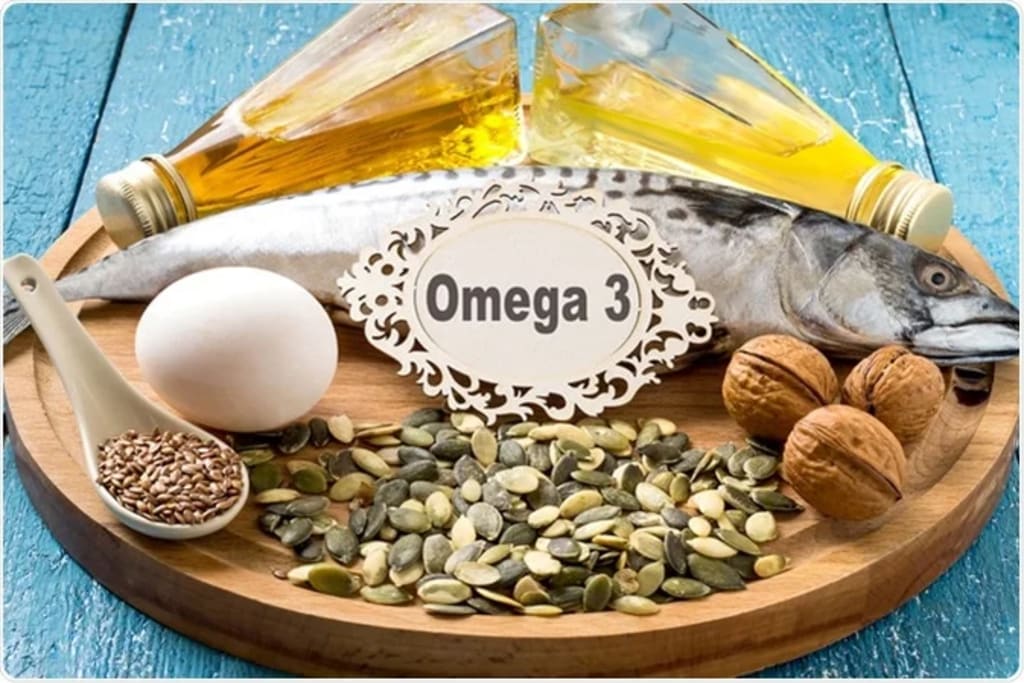What Are the Cleanest and Purest Sources of Omega-3 Fatty Acids
Omega-3 fatty acids are extremely beneficial for our bodily functions. Read the blog to learn about the purest sources of omega-3!

Omega-3 fatty acids are a healthy and important type of fat that has numerous health benefits. There has been a lot of research done on omega-3 fats and how they can support heart health.
Omega-3 fatty acids are a type of unsaturated fat that you’ve likely heard is extremely beneficial to your health. You’ve probably observed that they’re more abundant in oily fish.
The omega-3 industry is focusing more than ever before. On the supermarket shelf, you can now find a wide variety of products labeled as fish oil, including cod liver, salmon, and even krill oil. While these sources contain EPA and DHA omega-3 fatty acids, their concentration and nutritional profiles differ tremendously.
It’s worth noting that omega-3 fats or crude omega-3 oil come in three varieties: DHA, EPA, and ALA. Although ALA is numerous in plant-based sources, DHA and EPA are more difficult to access on a vegan or vegetarian diet.
Here, we’ll go over some of the best omega-3 sources (both fish and plant-based) and why you might benefit from more of them.
Best Sources of Omega-3 Fatty Acids
This super nutrient is found in a variety of plants and will not only increase your omega-3 intake but will also offer a myriad of other important nutrients for overall health.
1. Oily Fish sources
Fatty fishes are renowned as a superfood because they are rich in many nutrients. Salmon, mackerel, sardines, herring, and anchovies are omega-3-rich fish.
Some of the best sources are the fish listed below. These are the purest sources of fatty acids.
(A) Salmon
Salmon is one of the most prominent and nutrient-dense fish available. There are several differences between wild and pastured salmon, such as differences in omega-3 content.
One serving of farmed salmon includes:
- 1.24 g of DHA
- 0.59 g of EPA
A serving of wild salmon contains the following nutrients:
- 1.22 g of DHA
- 0.35 g of EPA
Salmon is also rich in protein, magnesium, potassium, selenium, and B vitamins.
(B) Shrimp
Shrimp is eaten as an appetizer as well as an element of many meals all over the world.
One shrimp serving contains:
- 0.12 g of DHA
- 0.12 g of EPA
Shrimp is high in protein and potassium as well.
(C) Mackerel
Mackerel is a small, fatty fish that is frequently smoked and eaten for breakfast.
A serving of mackerel contains the following nutrients:
- 0.59 g of DHA
- 0.43 g of EPA
Mackerel is high in selenium and vitamin B-12, with omega-3.
(D) Sardines
Sardines are tiny, oily fish that can be purchased in cans and consumed as a snack or appetizer.
One can of sardines contains the following nutrients:
- 0.74 g of DHA
- 0.45 g of EPA
Sardines are also high in selenium, along with vitamins B-12 and D.
2. Vegetarian and vegan sources
As a vegan or vegetarian, you may want to increase your intake of omega-3 fats to improve your health. Here are some of the vegan options for omega-3 fatty acids.
(A) Flaxseeds
Flaxseeds contain 6.703 g of ALA per tablespoon.
Flaxseeds are one of the most nutritious seeds. They are high in a variety of nutrients, including:
- Fiber
- Protein
- Magnesium
These seeds may help to lower blood pressure and strengthen heart health. Flaxseeds can be combined with water to make a vegan egg substitute. They are also simple to integrate into the diet by mixing them into oatmeal, cereal, or salad.
(B) Chia seeds
Chia seeds are a great source of ALA omega-3 fatty acids from plants. They also contain a lot of protein and fiber. It contains 5.055 g of ALA.
People can add these seeds to granola, salads, or smoothies, or mix them with milk or yogurt. Like Flaxseed, Chia seeds combined with water can also be used as an egg substitute by vegans.
(C) Seaweed and Algae
Algae rich in omega-3 fats include seaweed, spirulina, nori, and chlorella. These foods are particularly significant for vegans and some vegetarians to intake because they are one of the few plant-based sources of EPA and DHA omega-3 fatty acids.
The amount of DHA and EPA in a product varies depending on the type of algae and the product. Seaweed is also high in protein and may have anti-diabetic, antioxidant, and antihypertensive properties.
The Bottom-line
Omega-3 fatty acids are beneficial in the diet because they can decrease inflammation and keep the body healthy. It reduces the risk of cardiovascular disease.
Icelandirect has been the top fish and sea oil manufacturer in the USA. We are the bulk fish oil supplier and vegan supplements manufacturer as well. Our high-quality products are renowned for their purity.
Contact us for your next fish oil manufacturing project!





Comments
There are no comments for this story
Be the first to respond and start the conversation.